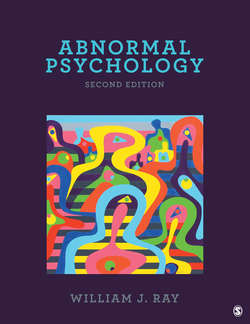Читать книгу Abnormal Psychology - William J. Ray - Страница 119
На сайте Литреса книга снята с продажи.
Does Playing Music Change the Brain?
ОглавлениеLet’s examine a specific study in which both experimental and correlational procedures were used. Thomas Elbert and his colleagues (Elbert, Pantev, Weinbruch, Rockstroh, & Taub, 1995) began with the idea that experience could change the manner in which connections in the brain were established. What these researchers needed to do was find a task that would allow them to measure change and make logical inferences. Since they were interested in long-term changes, they sought to find a skill that people learn in childhood. They decided on an experiment that involved playing a musical instrument.
What musical instrument would you choose for such an experiment—piano, saxophone, violin, or another instrument? They chose the violin. Here is where logic and experimental design came in. By choosing the violin, these researchers were able to compare the differences between the violinists’ left and right hands and their representation in the brain. Violinists use their left hand to continuously finger the strings. The right hand moves the bow back and forth and does not require the same fine motor skills. If playing a violin for 20 years would affect the brain, then it should affect those areas involved with the left hand in a different manner from those involved with the right. This is exactly what they found.
Figure 3.6 How Playing Music Affects the Brain
Source: Elbert et al. (1995).
To measure neuronal activity in the brain, these researchers used a brain imaging device, the MEG. They found that neuronal activity in the brain was different between the areas of the brain related to the left and right fingers of musicians. Further, they found that the brain areas of the musicians’ right hands were not different from those of the control group who did not play a musical instrument. Thus, the experimental comparison was between individuals who had played a musical instrument since childhood and the control group, those who had not. There was also a comparison between the brain areas involved with the left and right fingers of the musicians. Further, these researchers examined the correlation between neuronal activity and the length of time an individual had played an instrument. Figure 3.6 shows this relationship. As you can see, this is a negative correlation in that the earlier (lower number) one began to play an instrument, the stronger the neuronal activity was. The experimental and correlational aspects of this research helped the researchers logically conclude that previous experience can influence brain organization. The major point here is that prior experience can influence the brain, which will be an important consideration in fully understanding the development of mental illness and its treatment. For example, therapy for depression changes the flexibility of the brain connections, whereas stress restricts flexibility (Castrén & Hen, 2013).
